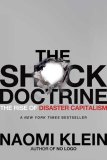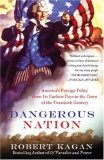Summary | Excerpt | Reviews | Beyond the book | Read-Alikes | Genres & Themes | Author Bio

The Uses and Abuses of History
by Margaret MacMillanKnown as a historian who takes on ambitious projects, Margaret MacMillan doesn't disappoint in Dangerous Games. Drawing upon a wealth of historical examples, she reminds the reader that history is malleable, and too often distorted for political and sociological gain. She cautions that history is neither a guide nor an authority, and that its true value is to be found in the process of examination, rather than in the judgment of its content.
[History] aids in formulating questions, and without good questions it is difficult to begin to think in a coherent way at all. Knowledge of history suggests what sort of information might be needed to answer those questions. Experience teaches how to assess that information.
MacMillan's approach is both engrossing and accessible. Inevitably, people will cite specific historical facts to buttress an argument, choosing select tidbits to force a view. But by presenting historical scenarios, MacMillan reveals the problems of using written or oral accounts as a means of proving a point of view, particularly when it comes to land-rights. The dangers of accepting a specific point in history as prove of a group's right to that land becomes apparent in examples such as the 1919 Paris Peace Conference:
In 1919, at the Paris Peace Conference, which marked the end of World War I, justification for claims to territory assumed huge importance because there was so much to be divided up and so many competing claims… the arguments fell into three main categories: strategic, ethnographic, and historical right. Italy claimed much of the Dalmatian coast, partly on the grounds that Italian Civilization was superior to that of the largely Slavic inhabitants, but also because Venice had once ruled it. The leader of the Polish delegation to Paris wanted to reestablish the borders of 1772, when Poland ruled over today’s Lithuania and Belarus. The Serbs longed for the boundaries of the fourteenth century when King Stephen’s kingdom stretched from the Aegean up to the Danube.
She addresses controversial issues head-on, reminding the reader that subjective interpretations of history are at the forefront of many current events and crises.
In one of the most difficult and dangerous disputes in the present, Israelis and Palestinians argue over possession of the small piece of land that was once Palestine in the Ottoman Empire… It is almost impossible for the two sides to find common answers because history lies at the heart of both their identity and their claims to Palestine.
By providing a critical look into the use of history in the popular sphere, she exhorts the reader to closely examine historical claims, and to return to the source of the claim in order to better understand all sides of the story. There are dozens of historians who have criticized the efficacy of history as an authority; In this short volume, MacMillan does this with wit and an accessible, engaging style.
The timing of MacMillan’s latest work is no coincidence. History has left its school-book moorings and figures prominently in our discussions of politics, economics, and policy. We call on examples of people and events to solidify claims, sway opinions, and inflame audiences, and attempt to learn from its lessons. Dabblers and storytellers have joined professional historians on the bookshelves and bestseller lists, with often cursory or careless accounts of popular figures or eras. MacMillan invites the reader to reexamine history as a subject itself, and reconsider its application. These tumultuous times prompt us to mine the past for answers, and though history’s coffers are far from empty, they can also, if left in the hands of the unscrupulous, contort public sentiment. Dangerous Games serves as both a timely warning, and a valuable handbook for citizens of the 21st century.
![]() This review was originally published in The BookBrowse Review in August 2009, and has been updated for the
August 2010 edition.
Click here to go to this issue.
This review was originally published in The BookBrowse Review in August 2009, and has been updated for the
August 2010 edition.
Click here to go to this issue.

If you liked Dangerous Games, try these:

by Naomi Klein
Published 2008
The bestselling author of No Logo exposes the rise of "disaster capitalism" and destroys the myth of the global "free market".

by Robert Kagan
Published 2007
From the author of the immensely influential and best-selling Of Paradise and Power—a major reevaluation of America’s place in the world from the colonial era to the turn of the twentieth century.
A classic is a book that has never finished saying what it has to say
Click Here to find out who said this, as well as discovering other famous literary quotes!
Your guide toexceptional books
BookBrowse seeks out and recommends the best in contemporary fiction and nonfiction—books that not only engage and entertain but also deepen our understanding of ourselves and the world around us.